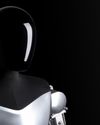
Human drivers just don’t do a good job of navigating dense traffic conditions, but an experiment using artificial intelligence in Nashville last week means help could be on the way. In the experiment, specially equipped cars were able to ease rush hour congestion on Interstate-24, researcher Daniel Work said. In addition to lessening driver frustration, Work said less stop-and-go driving means fuel savings and, by extension, less pollution.
The professor of civil and environmental engineering at Vanderbilt University is one of a group of engineers and mathematicians from universities around the U.S. who have been studying the problem of phantom traffic jams after a simple experiment in Japan a dozen years ago showed how they develop. Researchers there put about 20 human drivers on a circular track and asked them to drive at a constant speed. Before long, traffic went from a smooth flow to a series of stops and starts.
“Phantom traffic jams are created by drivers like you and me,” Work explained.
One person taps the brakes for whatever reason. The person behind them takes a second to respond and has to brake even harder. The next person has to brake even harder. The wave of braking continues until many cars are at a standstill. Then, as traffic clears, the drivers accelerate too quickly, causing more braking and yet another jam.
“We know that one car braking suddenly can have a huge impact,” Work said.
هذه القصة مأخوذة من طبعة November 26, 2022 من Techlife News.
ابدأ النسخة التجريبية المجانية من Magzter GOLD لمدة 7 أيام للوصول إلى آلاف القصص المتميزة المنسقة وأكثر من 9,000 مجلة وصحيفة.
بالفعل مشترك ? تسجيل الدخول
هذه القصة مأخوذة من طبعة November 26, 2022 من Techlife News.
ابدأ النسخة التجريبية المجانية من Magzter GOLD لمدة 7 أيام للوصول إلى آلاف القصص المتميزة المنسقة وأكثر من 9,000 مجلة وصحيفة.
بالفعل مشترك? تسجيل الدخول

iPad mini - AI-READY DESIGN: THE A17 CHIP POWERHOUSE IN A COMPACT SIZE
Technology continues to shrink in size yet grow in capability, and the new iPad mini is no exception. The robust tool was designed to meet the demands of both personal and professional users.

16 Pro - AI-ORIENTED IMPROVEMENTS ON THE NEW IPHONE FLAGSHIP
At this year’s September Event, Glowtime, Apple unveiled new Apple Watches, AirPods, and iPhones.

iPhone 16 - THE STANDARD MODEL HAS NEVER BEEN THIS CLOSE TO PRO PERFORMANCE
The iPhone 16 and iPhone 16 Plus usher in a new era of tech powered by cutting-edge Apple Intelligence.

iPad Pro M4 - LOGIC PRO & FINAL CUT PRO: THE NEW HEIGHTS OF MOBILE COMPUTING
Apple wowed professionals with its all-new iPad Pro and iPad Air at its Let Loose event in May, but it is the accessories and software that will make the next generation of tablets stand out from the crowd and empower users to be more creative and productive than ever before.

Next Gen - iOS 18: PERSONALIZATION & INTELLIGENCE ACROSS MULTIPLE FEATURES & APPS
At this year’s WWDC, Apple introduced iOS 18, a significant update set to redefine the user experience on iPhone.

Robotics - AI TECHNOLOGY NOW TURNING SCI-FI INTO INDUSTRIAL REVOLUTION
The lines between science fiction and reality continue to blur, and new AI innovations bring the Machine Era closer to reality.

AirPods 4 - THE FAST EVOLUTION OF THE POPULAR WIRELESS EARPHONES
AirPods have transformed how we experience audio. With the introduction of the fourth generation, Apple is pushing the boundaries of innovation further, delivering immersive sound and connectivity.

Robot War - NEXT-GEN HUMANOID: OPTIMUS TESLA BOT VS ATLAS BOSTON DYNAMICS
Once a thing of science fiction, humanoid robots are now a reality, unlocking a new chapter in the world of technology and bringing to the fore a fascinating contest between two titans of the industry: Tesla, with its Optimus Tesla Bot, and Boston Dynamics, the creators of Atlas. It's a clash that could shape the future of robotics and how we live and work forever.

2024 THE DAWN OF THE APPLE INTELLIGENCE PRODUCTIVITY
2024 has been a groundbreaking year for Apple, with the tech giant continuing to deliver premium products catering to diverse users.

AUSTRALIA PLANS TO TAX DIGITAL PLATFORMS THAT DON'T PAY FOR NEWS
The Australian government said it will tax large digital platforms and search engines unless they agree to share revenue with Australian news media organizations.